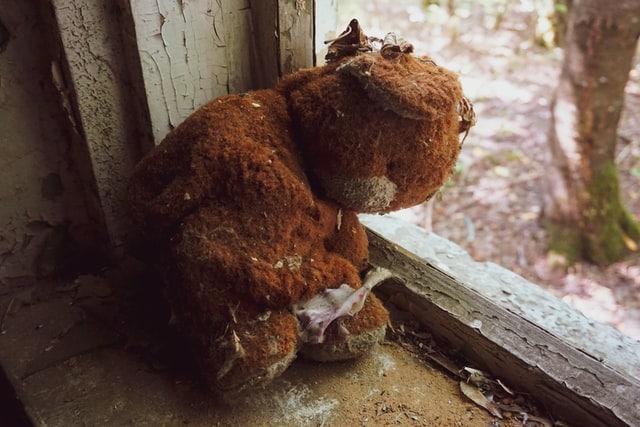Fear and the Hunger for Power Affect Us All

Less than twenty-four hours ago as I write this, Russia attacked Ukraine under Putin’s orders. This should come as a surprise to no one. Putin felt threatened by (read: fearful of) Ukraine’s desire to align with Western Europe and away from his sphere of influence.
Fear is a basic, hard-wired emotion tied in with our survival instinct. Ironically, it is so strong, the fear that things won’t change can override the survival instinct for those who consider or commit suicide.
I would argue that fear is also the driving force behind the hunger for power. The more power I have, the easier it is to secure food and shelter and defend against my enemies. The more power I have, the easier it is to convince others to rally around me, playing on their fears for my benefit. “Serve me, and I’ll protect you,” I say, even if I get more benefit out of it than you. Fear has driven Us versus Them tribalism throughout the ages.
This is why fear-mongering political ads are so effective. The ads prey on fears of change, of loss of power, of “others” who threaten to take what you have, (even if the true threat is from one’s own leaders). Fear is used to polarize us by replacing people with abstracts, and dehumanizing labels.
In the Western World, most people have a general concept of shared humanity and social contract. We espouse being neighborly, helping others, developing community, seeking the greater good. But if we feel our well-being — or our family’s, or our community’s — is threatened, we retreat into the Us vs. Them mode. This is especially true in the United States, where we additionally fall back on the “independent” trope to justify ignoring the needs of others.
It takes thinking, and effort, and emotional vulnerability to step out of fear mode and into reasoning mode. It is hard to move past the defensive mindset fear calls for and try to look at the bigger picture. But it is crucial, not only for our own survival, but for the survival of humanity and every living thing.
War is nothing new to humanity. The drive for survival, for a better life, and for power, have existed for millennia. However, in the last sixty years or so have we reached the point where we can destroy everyone and everything as we know it.
“Won’t happen,” you might scoff, “because the stakes are too high.”
I certainly hope and pray it doesn’t. But we humans operate more from emotion than logic. Consider the parent who kills their children because, “If I can’t have them, no one can.” Or, “I want to spare them from the hurts of this world.”
“Well, it’s not like I can do anything about it anyway,” you may shoot back.
But there is something you can do.
Recognize your own fears and determine not to let them rule your thoughts and decisions.
If hate has become your default mode, understand that it destroys you faster than anyone else. Let it go. (See Bebe Nicholson’s article, The Obsession With Trump is Pathological for more.)
Hang on to your passion for good, whether it is for justice, or equity, or health care, or against censorship, or saving the planet, or whatever. Passion fuels efforts to better humanity, not just efforts to destroy it.
Make the effort to think. Acknowledge your emotions, but think beyond them.
But I hate politics!
Me, too, and the temptation to “meh” is a real one — and understandable — when the highly charged rhetoric of the extremes grinds us down daily. (See Pam Winter’s thought provoking article, Will People Never Get Over Trump?)
But “meh” is dangerous. Consider the words of Elie Wiesel in U.S. News and World Report, 27 October 1986 (from Oxford Reference):
The opposite of love is not hate, it’s indifference. The opposite of art is not ugliness, it’s indifference. The opposite of faith is not heresy, it’s indifference. And the opposite of life is not death, it’s indifference.
Martin Niemöller also touch on this idea after surviving the same war. (See below.)
You don’t have to sign up for someone’s political campaign to make a difference. Or even march in a protest, although you might. There are so many things you can do, especially in conversation.
- Hold your leaders accountable for their words and actions.
- Ask questions. Particularly Why and How.
- Be open to unexpected answers.
- Seek to understand Why someone feels the way they do. An open, non-judgmental ear will be remembered and appreciated long after any sermon that is preached.
- There is always common ground to be found. Seek it out.
I’m a moderate-to-liberal living in the Reddest part of the Great Red State of Texas, where people live and die by the price of oil. That is not ideology but reality. The ability to put food on the table and keep a roof over heads is a real struggle for many here, including my own household. But I can smile at the harried clerk at the store. I can loan my jumper cables to the Crazy Lady next door. I can use my words, spoken and written, to encourage others out of their fears.

We are all human, connected by the the same basic fears, needs and desires. It doesn’t matter whether you ascribe to a common evolutionary ancestor or a created one. For the Christian, I would remind you that Jesus came because God loved the World (cosmos or κοσμόν in the Greek) so much. For others, you may recognize the Life Force that connects us, the Atma, the Ruach.
Regardless, we who have a voice have a responsibility to speak for those who don’t. Use it.
May you find peace in the midst of war, Hope to reach through despair, And grace to wash away fear and condemnation In the renewing flood of Love. So be it.
*****
For more to chew on, I recommend:
- The Pearls of Indifference, speech by Elie Wiesel, 12 April 1999 (text or audio)
- Martin Niemöller, “First They Came…” – Quote or No Quote? Professor Buzzkill History Podcast (text or audio)